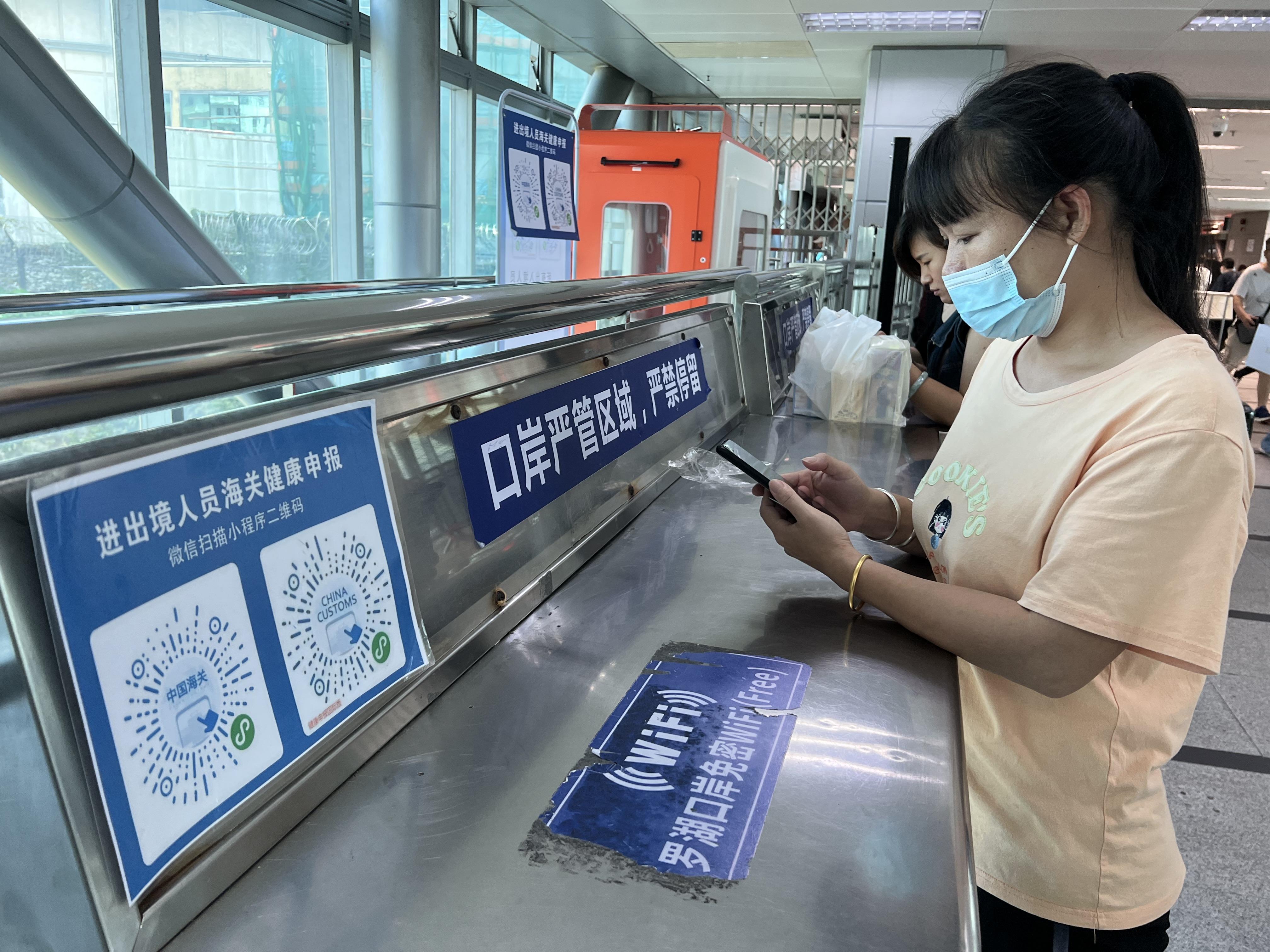 Travelers fill in an electronic heath declaration form for health declaration process for cross-border travel at the Lo Wu Control Point on Sept 18, 2023. (EDMOND TANG / CHINA DAILY)
Travelers fill in an electronic heath declaration form for health declaration process for cross-border travel at the Lo Wu Control Point on Sept 18, 2023. (EDMOND TANG / CHINA DAILY)
Hong Kong society on Sunday expressed support for the possible lifting of the Chinese mainland’s cross-border health declaration arrangement, saying it would mark a complete return to normal travel, and called for further optimization on customs clearance procedure to accelerate integration.
Local media cited sources as saying that national authorities will cancel the arrangement on Wednesday. The health declaration for cross-border travel, also known as the “black QR code”, was imposed during the COVID-19 pandemic to control health risks and protect public safety.
Under the arrangement, cross-border passengers need to complete an electronic health declaration form and generate a QR code on their smartphones every time they cross the border between Hong Kong and the mainland.
Starry Lee Wai-king, the Hong Kong member of the Standing Committee of the National People’s Congress, said a source from the nation’s General Administration of Customs told her in response to her recent inquiry on the matter that “further optimization of the declaration arrangement has entered the final stage”.
Lee said she is confident that the health code will be canceled on Wednesday, but added that authorities need to announce more details, including the number of control points covered and whether a declaration will not be required.
Lee said that during her recent visits to Beijing to attend meetings of the NPCSC, she visited the General Administration of Customs and discussed Hong Kong residents’ appeals to cancel the health-code requirement. The department gave reasons for not canceling the arrangement, including the need to monitor the control of infectious diseases, Lee said.
Previously, mainland authorities adopted multiple measures to simplify the declaration process. For example, the effectiveness of health declaration QR code for or cross-border students and goods vehicle drivers has been extended to seven days.
Lawmaker Gary Zhang Xinyu told China Daily that he observed at the West Kowloon high-speed railway station on Sunday that passengers were not being required to provide health declarations.
The infrastructure connectivity between Hong Kong and Guangdong province has been increasingly convenient, but the procedures of cross-border flow of people and goods still need further optimization and simplification, Zhang said, adding that it has become a pressing issue for the governments of both regions.
“Only by solving this can we achieve the orderly and unhindered flow of key production elements among cities in the Guangdong-Hong Kong-Macao Greater Bay Area, and promote high-quality development of the entire region,” he said.
Lawmaker Bill Tang Ka-piu said he received many cheers when discussing the news with local residents.
Tang said he hopes the special administrative region government will double down on its efforts to facilitate Hong Kong residents’ travel to and from the mainland, such as extending more checkpoints’ operation to 24 hours, and strengthening the shuttle bus service to the ports.
He also proposed further streamlining the passenger clearance procedure, applying facial recognition technologies on a wider scale, and working more with passengers with bicycles to cross the border, which will help Hong Kong residents explore the scenery on the other side and deepen integration.
China Daily also sought verification from Shenzhen Customs. An officer replied that only the official announcement of the General Administration of Customs can verify the news.
Xi Tianqi and William Xu contributed to the story.


